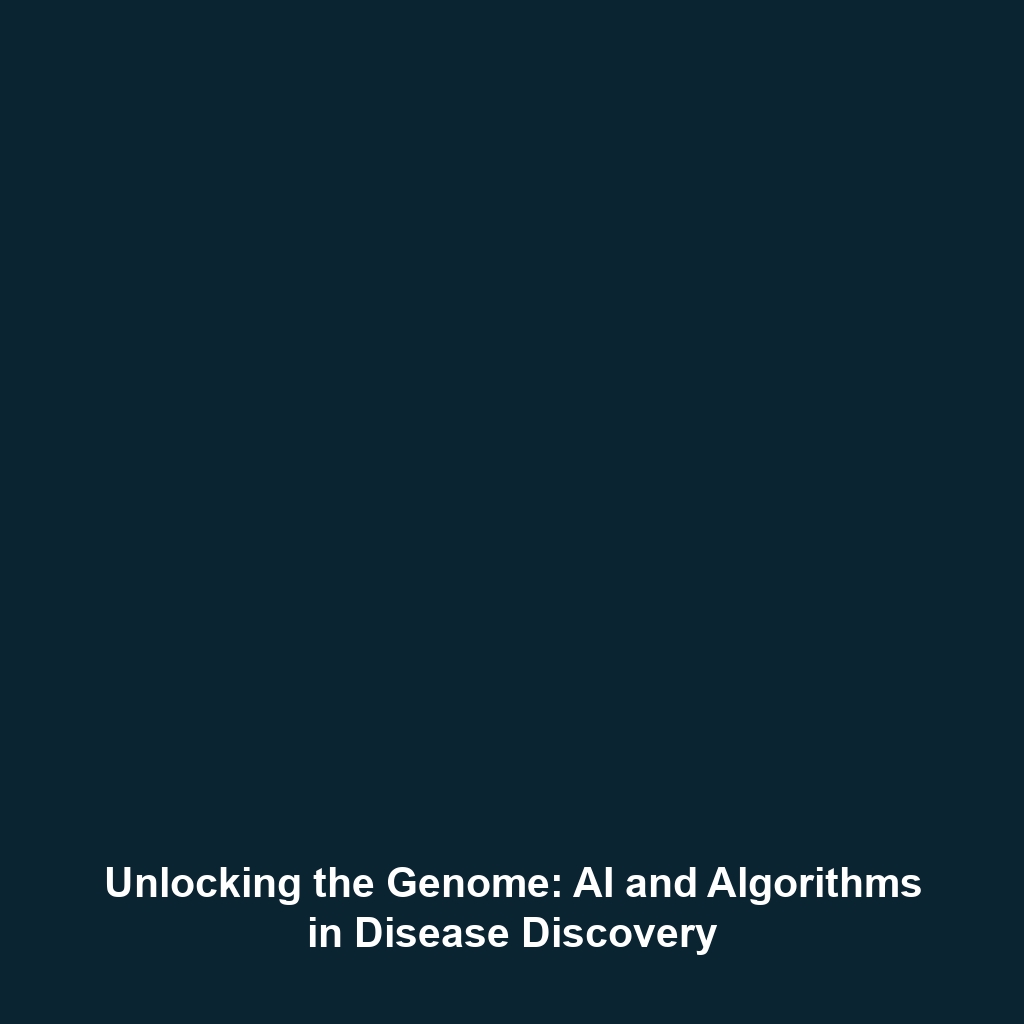The Rise of Computational Genomics: Using Algorithms and Machine Learning to Identify Genetic Patterns and Disease Associations
Introduction: The advancements in computational genomics represent a paradigm shift fueled by the Human Genome Project’s ambitious goal of decoding the human DNA sequence. This rapidly evolving field harnesses the power of algorithms and machine learning to unravel genetic patterns and associate them with diseases. As researchers analyze vast genomic datasets, they pave the way for precision medicine, personalized therapies, and enhanced understanding of genetic diseases. Here, we explore the significance of computational genomics, its applications, and the challenges it faces within the broader context of the Human Genome Project.
Key Concepts
Computational genomics encompasses a range of key concepts that integrate various disciplines, including biology, computer science, and statistics. Some of the major principles include:
- Genomic Data Analysis: Employing statistical methods to interpret genetic data.
- Machine Learning Algorithms: Utilizing learning algorithms to predict genetic disease susceptibility.
- Pattern Recognition: Identifying genomic patterns that correlate with various health conditions.
- Big Data in Genomics: Managing and analyzing massive datasets generated by sequencing technologies.
These principles firmly position computational genomics as a crucial component of the Human Genome Project, enabling scientists to derive meaningful insights from complex genetic information.
Applications and Real-World Uses
Computational genomics has significant real-world applications that continue to evolve as technology advances. Some notable uses include:
- Precision Medicine: Tailoring medical treatments based on individual genomic profiles.
- Drug Discovery: Utilizing genetic information to identify potential drug candidates for specific diseases.
- Predictive Genetics: Assessing the risk of inherited conditions through genetic testing.
- Population Genomics: Studying genetic variations in populations to understand disease susceptibility.
These examples highlight how computational genomics is applied in the context of the Human Genome Project, transforming healthcare and research.
Current Challenges
Despite its promise, computational genomics faces several challenges and limitations, including:
- Data Privacy: Ensuring the security and ethical use of sensitive genetic information.
- Algorithm Transparency: Understanding and explaining machine learning models to clinicians and patients.
- Integration of Multimodal Data: Combining diverse types of data (genomic, transcriptomic, etc.) for comprehensive analyses.
- Bias in Data Sets: Addressing bias in genetic data that may affect algorithm performance and health outcomes.
These challenges underscore the complexities involved in advancing the field of computational genomics while maintaining ethical standards.
Future Research and Innovations
The landscape of computational genomics is constantly evolving, with future innovations poised to reshape the field. Upcoming areas of research include:
- Artificial Intelligence (AI) Integration: Enhancing machine learning techniques to improve genetic predictions.
- Single-Cell Genomics: Investigating cellular heterogeneity through advanced genomic sequencing.
- CRISPR and Gene Editing: Utilizing genomic data for targeted gene-editing applications.
- Personalized Health Monitoring: Developing tools that continuously analyze genetic data for real-time health assessments.
These innovations are expected to further the goals of the Human Genome Project by facilitating breakthroughs in understanding human health and disease.
Conclusion
In summary, the rise of computational genomics is revolutionizing the way we understand and utilize genetic information, crucially tied to the milestone achievements of the Human Genome Project. As algorithms and machine learning techniques continue to advance, they open new avenues for disease prediction, treatment, and prevention. Ongoing research in this area is essential, and further exploration of the implications of computational genomics can lead to enhanced healthcare outcomes. For more insights, explore our sections on precision medicine and genetic testing.
